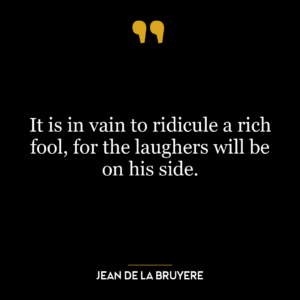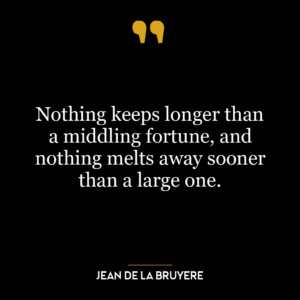This quote is a profound reminder of the importance of maintaining one’s moral compass and personal freedom above material wealth and power. It suggests that virtue and liberty are invaluable and should not be compromised or traded for any amount of wealth or power.
The first part, “Sell not virtue to purchase wealth,” means one should not compromise their moral principles or personal integrity for the sake of obtaining material wealth. In other words, it’s a warning against allowing greed to lead us into unethical behavior.
The second part, “nor liberty to purchase power,” implies that one should not sacrifice their personal freedoms or independence to gain power or control. This can be seen as a caution against becoming so consumed with obtaining power that we surrender our personal liberties or allow ourselves to be controlled by others.
In today’s world, this quote can be applied in various contexts. In politics, for instance, it may serve as a reminder for leaders not to compromise their principles or the freedom of their constituents for the sake of power or wealth. In business, it could mean not engaging in unethical practices for the sake of profit.
In terms of personal development, this quote encourages individuals to prioritize their values and freedoms over materialistic pursuits. It suggests that true success and fulfillment come from living according to one’s principles and maintaining personal freedom, rather than accumulating wealth or power at the expense of these. It can also be a reminder to not let our desire for success lead us to compromise our values or sacrifice our personal freedom.












